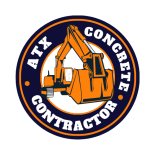Introduction
Concrete is a versatile and durable material commonly used in construction projects. It provides a solid foundation for buildings, driveways, and walkways. However, when left unsealed, concrete can be susceptible to damage from weather, chemicals, and wear and tear. This is why many people choose to seal their concrete surfaces. But does sealing concrete make it slippery? Let’s find out.
Table of Contents
- Benefits of Sealing Concrete
- Does Sealing Concrete Make It Slippery?
- Preventing Slipperiness
- FAQ
- Conclusion
Benefits of Sealing Concrete
Before we delve into the question of whether sealing concrete makes it slippery, let’s first understand the benefits of sealing concrete:
- Protection against stains: Sealing concrete helps to prevent stains from oils, chemicals, and other substances. This is especially important for driveways and garage floors.
- Enhanced durability: Sealing concrete can increase its lifespan by protecting it from moisture, freeze-thaw cycles, and UV damage.
- Improved appearance: A concrete sealer can enhance the color and shine of the concrete, giving it a more polished and attractive look.
- Easier maintenance: Sealed concrete is easier to clean and maintain. It resists dirt, dust, and grime, making it ideal for high-traffic areas.
Does Sealing Concrete Make It Slippery?
The answer to this question is not a simple yes or no. Sealing concrete can potentially make it more slippery, especially if the wrong type of sealer is used or if it is not applied correctly. Some sealers can create a glossy or smooth surface that may become slippery when wet.
However, it’s important to note that not all sealers have this effect. There are sealers specifically designed to provide traction and reduce slipperiness. These anti-slip sealers contain additives that create a textured surface, improving grip even when the concrete is wet.
When choosing a concrete sealer, it’s crucial to consider the intended use of the surface. For example, a driveway or outdoor walkway may require a different type of sealer compared to an indoor floor. Consulting with a professional or reading product specifications can help you choose the right sealer for your specific needs.
Preventing Slipperiness
If you have already sealed your concrete and are experiencing slipperiness, don’t worry. There are several steps you can take to reduce the risk of slips and falls:
- Use an anti-slip additive: If you find that your sealed concrete is too slippery, you can apply an anti-slip additive to the sealer. This will create a textured surface that improves traction.
- Regularly clean the surface: Keeping your sealed concrete clean is essential for preventing slipperiness. Remove any dirt, debris, or moss that may accumulate on the surface.
- Apply a non-slip coating: In some cases, you may need to apply a non-slip coating over the sealed concrete to enhance traction. These coatings are specifically designed to provide grip and prevent slips.
- Use caution when wet: Always exercise caution when walking on sealed concrete surfaces that are wet. Take smaller steps and walk slowly to reduce the risk of slipping.
FAQ
1. Is it necessary to seal concrete?
Sealing concrete is not always necessary, but it is highly recommended. Sealing provides numerous benefits, including protection against stains, enhanced durability, and improved appearance.
2. How long does a concrete sealer last?
The lifespan of a concrete sealer depends on various factors, such as the type of sealer used, the application method, and the level of foot or vehicle traffic. Generally, most sealers last between 1 to 5 years before needing reapplication.
3. Can I apply a concrete sealer myself?
Yes, it is possible to apply a concrete sealer yourself. However, for best results, it is recommended to consult with a professional or follow the manufacturer’s instructions carefully.
Conclusion
Sealing concrete offers numerous benefits, but it is essential to choose the right type of sealer to prevent slipperiness. While some sealers can make concrete more slippery, there are anti-slip sealers available that provide traction even when wet. If slipperiness is an issue, taking preventive measures such as using anti-slip additives or non-slip coatings can help reduce the risk of accidents. Ultimately, sealing concrete is a valuable investment that enhances its durability, appearance, and overall lifespan.
